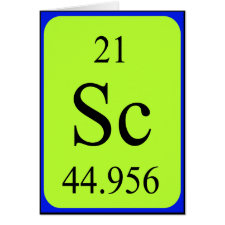
Authors: Ho WL, Liu YY, Lin TC
Article Title: Development of Molecular Imprinted Polymer for Selective Adsorption of Benz[a]pyrene Among Airborne Polycyclic Aromatic Hydrocarbon Compounds.
Publication date: 2011
Journal: Environmental Engineering Science
Volume: 28
Issue: (6)
Page numbers: 421-434.
DOI: 10.1089/ees.2010.0268
Alternative URL: http://www.liebertonline.com/doi/abs/10.1089/ees.2010.0268
Abstract: This study combined molecular imprinted polymers (MIPs) and solid-phase extraction (SPE) to create a novel sample pretreatment technique for chemical analysis of polycyclic aromatic hydrocarbons (PAHs) in cigarette smoke. Experimental results demonstrated that MIPs have good selectivity for benz[a]pyrene (BaP) among mixtures of 16 PAH solutions. Molecular imprinted SPE (MISPE) cartridges were applied to a sample taken from mainstream smoke from a cigarette. Based on functional monomer and crosslinker, this study investigated four groups of MIPs. After each template was removed, tests on capacity, selectivity, recovery, scanning electron microscope observations, and real environmental sample tests were conducted. Experimental results showed that MIP-3 (methacrylic acid-co-trimethylolpropane trimethacrylate) is the best MIP, with a capacity of 7.80 ± 0.8 (μg/g), BaP selectivity exceeding 84%, and recovery exceeding 80%. In the environmental sample tests, that is, mainstream smoke from reference cigarettes 3R4F, 87% of BaP was adsorbed by the MISPE cartridge compared with that adsorbed by the filters. All experimental results suggested that MISPE can more effectively adsorb BaP among the 16 different PAHs in mixtures, reduce background interferences, and increase signal resolution as compared with traditional extraction techniques. Additionally, using MISPE cartridges in sample pretreatment reduced both the analysis time and the amount of organic solvent used. In addition, using MISPE may also extract toxic target analytes from a complex sample selectively and more effectively than traditional Soxhlet extraction. Combination of MIP-3 and SPE for environmental sample pretreatment offers a useful tool for selective isolation of the mutagenic PAHs. This study is also the first to apply an MISPE cartridge in the analysis of trace-level BaP in cigarette smoke.
Template and target information: benzo[a]pyrene, BaP
Author keywords: molecular imprinted polymer, sample pretreatment, Solid-phase extraction, cigarette mainstream smoke, toxicity separation



Join the Society for Molecular Imprinting

New items RSS feed
Sign-up for e-mail updates:
Choose between receiving an occasional newsletter or more frequent e-mail alerts.
Click here to go to the sign-up page.
Is your name elemental or peptidic? Enter your name and find out by clicking either of the buttons below!
Other products you may like:
 MIPdatabase
MIPdatabase









